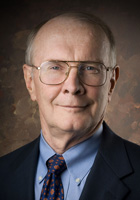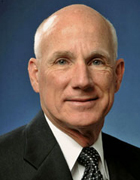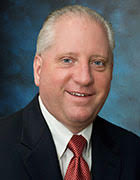Messages from the Deans
(Handbook 2017-2019)
The content of this chapter is applicable to both full-time and adjunct faculty.
Messages from the Deans
A Message from the Dean Emeritus

In 1858, John Henry Cardinal Newman described the ideal university as a residential community of students and teachers devoted to intellectual and spiritual matters. Unfortunately, few institutions of higher education today have managed to approach this ideal. There are widespread reports, nationwide, of low morale among teachers who feel overwhelmed and under-appreciated, performing work that seems mindless and mechanical. At the heart of this problem is the lonely work of teachers who often feel disconnected from administrators, colleagues, and many of their students.
Many in higher education speak of creating learning communities to address this issue. This idea of community is so appealing to many of us at Seaver College that my office has embraced it and has adopted the theme of “Building Community” as our focus for the college for the next few years. This is a challenging agenda. However, I am convinced that the building of a residential, liberal-learning community is an essential step in the larger goal of academic excellence within the context of Christian mission.
We are also fully aware that building community is an ongoing process and will always be unfinished work. As Martin Buber reminds us, “The empirical community is a dynamic fact. It does not take away (a person’s) solitude but fills it, makes it positive. It thereby deepens the consciousness of responsibility for the individual. The community does not have its meaning in itself.” As many of us know, one of the joys of teaching is the joy of participating in learning communities. I hope you will join us in one or more of the many programs we will initiate in the coming years and fully experience the joy of working as a co-learner in a collaborative setting.
W. David Baird
Dean Emeritus of Seaver College
A Message from the Provost

The vocation of a faculty member is simultaneously an exhilarating and intimidating endeavor. The challenges have never been greater for the scholar teacher; the explosion in information and the increasing expectations of the professoriate demand the utmost from today’s professor.
Seaver College strives for excellence in all areas of the academic enterprise and attempts to weave seamlessly the curricular and cocurricular expectations. We earnestly long to participate fully in the intellectual, spiritual, emotional, and psychological growth of our students. We desire to help empower our students to seriously consider the implications of a life that loves the Lord our God with all our heart, soul, strength, and mind, and our neighbor as ourselves.
Higher education today remains paradoxically one of the most admired and yet critiqued institutions in America. Colleges and universities suffer no lack of constituencies offering advice, encouragement, and criticism. At Seaver College, we take our vocation as professors most seriously; we recognize and acknowledge that we have been entrusted with a most precious treasure – the future of our global community. As we live our lives among our students, and share the wisdom we have gained through our rigorous study and reflection, may God grant us the energy and discernment to serve this university and our profession with honor and integrity.
Rick R. Marrs
Professor of Religion and Provost of Pepperdine University
A Message from the Dean

I want to thank you for your service as a faculty member at Seaver College. Since its founding in 1937, Seaver College has remained focus on its shared commitments to academic excellence and Christian values for the purpose of preparing students for lives of purpose, service, and leadership. All members of the university community share in the responsibility of developing the Seaver student, but the primary responsibility is that of the College's outstanding faculty. As a member of the faculty, you share the qualities and values articulated in the College's mission:
• Excellence and satisfaction as an educator
• Outstanding academic preparation
• A character worthy of emulation
• A creative mind and inquisitive spirit
• A devotion to Christian values arising from a personal spiritual commitment
• The desire to serve
These shared values help to create a vibrant and collegial faculty community and unite the faculty in supporting the total development of each student.
Seaver College is dedicated to the maintenance of a climate that allows our faculty to flourish while focusing their time and energy on their teaching, scholarship and creative endeavors, service, and support of the Christian mission. My office, in consultation with the Seaver Faculty Association, created this document to provide guidance on university policies, procedures, and practices in order to allow faculty to be more effective and efficient in their duties. I encourage you to use the handbook to guide your performance as a faculty member, and also as an aid in your professional development and success.
Michael E. Feltner
Professor of Sports Medicine and Dean of Seaver College